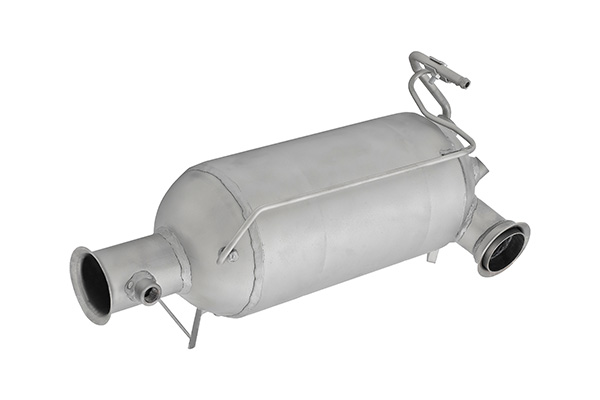
Owning a car comes with its fair share of maintenance responsibilities. One of the less frequently discussed but important components is the catalytic converter. This device reduces harmful emissions from your vehicle. But how do you know if it needs replacing? We will share the signs, causes, and processes involved in replacing a catalytic converter to ensure your car runs at peak performance and complies with environmental standards.
What Is the Catalytic Converter
The catalytic converter, located in your car's exhaust system, converts harmful pollutants in exhaust gasses into less harmful emissions before they exit the vehicle's tailpipe. It achieves this through chemical reactions facilitated by precious metals such as platinum, palladium, and rhodium.
Signs Your Catalytic Converter Might Need Replacing
Catalytic converters are designed to last the lifetime of a vehicle, typically around 100,000 miles. However, several factors can lead to premature failure. Here are some key indicators that your catalytic converter might need replacing:
- Check Engine Light: One of the most common signs is an illuminated check engine light. This can be triggered by a variety of issues, including a failing catalytic converter.
- Reduced Engine Performance: If you notice a significant drop in your car's power, acceleration, or fuel efficiency, it could be due to a clogged catalytic converter restricting exhaust flow.
- Rattling Noises: A damaged or broken catalytic converter can produce a rattling noise from under the vehicle, especially upon startup.
- Failed Emissions Test: A failing catalytic converter can cause your car to emit higher levels of pollutants, leading to a failed emissions test.
- Sulfur Smell: A malfunctioning catalytic converter can produce a strong sulfur or rotten egg smell.
Causes of Catalytic Converter Failure
- Contaminants: Oil or antifreeze leaks into the exhaust system can contaminate the catalytic converter, causing it to clog or overheat.
- Unburned Fuel: If your engine is running too rich, excess unburned fuel can enter the exhaust system and ignite in the catalytic converter, causing damage.
- Physical Damage: Road debris or accidents can physically damage the catalytic converter, leading to failure.
- Age and Wear: Like any component, catalytic converters can wear out over time, especially if the vehicle is driven frequently.
Replacing Your Catalytic Converter
If you suspect your catalytic converter is failing, it's crucial to address the issue promptly. Here's what you need to know about the replacement process:
Diagnosis
A professional technician will use diagnostic tools to confirm if the catalytic converter is the problem. This often involves checking error codes and conducting a visual inspection.
Removal
Replacing a catalytic converter involves removing the old unit, which is typically bolted or welded to the exhaust system.
Installation
The new catalytic converter is then installed. It's essential to ensure it is correctly fitted and all connections are secure to prevent leaks.
Testing
After installation, the technician will test the vehicle to ensure the new catalytic converter is functioning correctly and that the check engine light is off.
Cost of Catalytic Converter Replacement
Replacing a catalytic converter can be expensive due to the precious metals involved in its construction. Costs can vary widely depending on the make and model of your vehicle, but you can expect to pay anywhere from $500 to $2,500 for parts and labor. While this might seem steep, it's a necessary expense to keep your vehicle running efficiently and within legal emissions standards.
Preventing Catalytic Converter Issues
Prevention is always better than cure. Here are some tips to extend the life of your catalytic converter:
- Regular Maintenance: Keep up with your vehicle's maintenance schedule, including oil changes and tune-ups, to ensure your engine runs efficiently.
- Fix Leaks Promptly: Address any oil or coolant leaks immediately to prevent contamination of the exhaust system.
- Avoid Short Trips: Short trips can prevent your catalytic converter from reaching the optimal temperature to function correctly, leading to buildup and clogs.
- Monitor Fuel Quality: Use high-quality fuel and avoid any additives that could harm the catalytic converter.
Noticing a drop in your vehicle's performance or strange smells? Trust Gowen's Automotive Repairs to provide a thorough inspection and replacement if needed. Drive clean and efficient – schedule your appointment now!